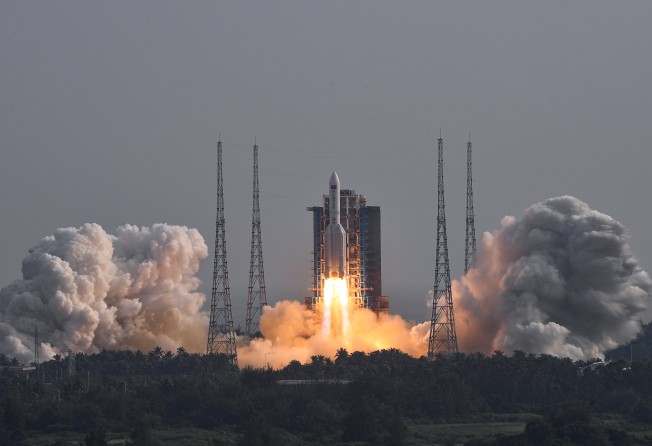
02:37
Ferdinand Marcos Jnr visits Beijing; Xi offers talks on joint oil exploration deal

Beijing and Manila will discuss cooperation on areas like weather forecasting and space tracking, and set up a notification system for rocket launches following a diplomatic row over Chinese debris found in Philippine waters.
The agreement was among those in a joint statement signed by Chinese President Xi Jinping and his Philippine counterpart Ferdinand Marcos Jnr, who was on a three-day visit to Beijing.
“Both sides agreed to explore potential cooperation in such areas as meteorology, space tracking, telemetry and command,” according to the joint statement released on Thursday.
“Both sides expressed willingness to establish an information notification system on rocket launches and work on procedures for the retrieval and return of space debris.”
Chinese space rocket debris has been found in Philippine waters in recent months and in the past, adding to tensions between the two countries over a long-standing territorial dispute in the South China Sea.
As well as a formal notification system for rocket launches, Xi and Marcos Jnr also agreed to set up a direct communication channel between their foreign ministries to handle the South China Sea dispute.
China’s claims to most of the resource-rich waterway overlap with those of the Philippines and other countries including Vietnam and Malaysia. Beijing has rejected a 2016 tribunal ruling in The Hague – a case brought by Manila – that invalidated its claims.
Manila lodged a diplomatic protest with Beijing after an incident in November, when the Philippine military said the Chinese coastguard had “forcefully” seized floating rocket debris being towed by a Philippine naval vessel in the South China Sea.
The Philippine military said the Chinese coastguard ship had twice blocked its vessel before it forcibly took the debris.
China’s foreign ministry confirmed that the debris was from a Chinese rocket launch but claimed it had been handed over by the Philippine navy after a “friendly consultation”.
The incident took place near the Philippine-occupied Thitu Island, known as Pagasa in the Philippines, which is close to Subi Reef – one of seven artificial islands built by China in the hotly contested Spratly archipelago.
The Philippine Space Agency last week issued a warning that called for “precautionary measures related to expected unburned debris” from China’s most recent space launch, a Long March 3B rocket on December 29.
The Civil Aviation Administration of China had notified the Philippine agency of the launch and the space agency then issued an advisory on the estimated drop zone and proposed that warnings be issued on air and marine access in the area.
China has previously been criticised for allowing rocket stages to fall to Earth uncontrolled. Last year, Nasa accused Beijing of “failing to meet responsible standards regarding their space debris” after parts of a Chinese rocket landed in the Indian Ocean.